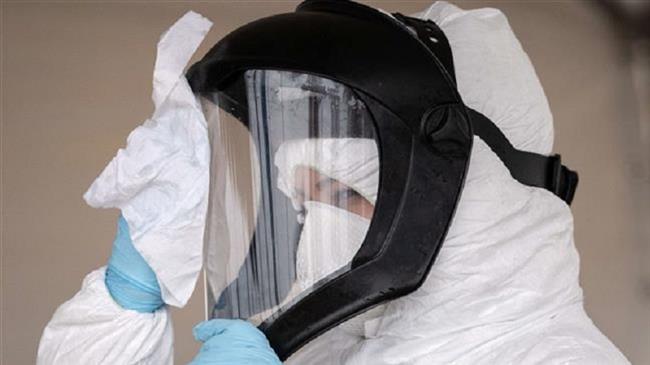Incident at major hospital raises fears over pressure on supplies during pandemic
An incident at an NHS teaching hospital, where the oxygen supply for its Covid-19 patients on ventilators nearly ran out last weekend, has prompted NHS bosses to urge all NHS trusts in England to limit the number of people they put on mechanical ventilators and continuous positive airway pressure (CPAP) machines.
As a consequence of this potentially life threatening incident, NHS bosses have directed all NHS trusts in England to limit the number of people they put on mechanical ventilators and continuous positive airway pressure (CPAP) machines.
NHS England warned hospital bosses in a letter on Monday that the risk constituted a “critical safety concern” which could have major repercussions for all patients relying on oxygen to stay alive. It told them to take a series of urgent actions to reduce the risk of their own oxygen supply suddenly running short because of unusually heavy demand.
The trusts were informed in the letter that a sudden surge in patients receiving support with their breathing because of coronavirus, risks a hospital’s oxygen supply failing altogether, which could cut off the supply to all those needing it to help them fight the infection in their lungs.

The skyrocketing number of patients throughout the NHS receiving oxygen also presents a second risk for a hospital – that its liquid oxygen storage tank, known as its vacuum insulated evaporator (VIE), could quickly become depleted.
Both scenarios “present a potentially significant risk to multiple patients”, NHS England said.
The warning underscores how the dramatic recent increase in hospitals’ use of ventilators and in particular CPAP machines, which dispense ventilation through a face mask, has brought with it those two main risks of a sudden and potentially very serious oxygen shortage. CPAP machines involve non-invasive assisted ventilation, whereas a mechanical ventilator does all the work and is particularly useful when the patient has lost the ability to breathe for themselves.
The letter says: “If the demand through multiple wall outlets [for wall-mounted CPAP machines] exceeds the maximum capacity of the VIE delivery system, there is a risk of rapid pressure drop in oxygen supply pipes.
“This could lead to a failure of oxygen delivery systems throughout the hospital, including to patients on face masks, CPAP, ventilators and [in] operating theatres. There is also a risk of rapid and unpredictable depletion of the VIE [storage tank].
“Both of these situations present a potentially significant risk to multiple patients simultaneously.”
Use of oxygen is not usually a potential hazard for hospitals because so few patients are on it, the letter says. “However, during the coronavirus epidemic, a far greater proportion of patients will require O2 therapy and ventilation, and this presents a clear and significant risk to oxygen delivery systems within hospital estates,” it adds.
The letter was signed by Prof Ramani Moonesinghe, NHS England’s national director for critical care, Prof Andrew Menzies-Gow, its national clinical director for respiratory medicine, and Adrian Eggleton, its national estates operational lead and Covid-19 NHS estates lead.
They advise trusts in the letter to:
- Calculate the maximum number of patients who can be treated with high-flow [oxygen] devices such as wall CPAP and communication of this to the relevant clinical teams.
- Implement safety measures to prevent accidental O2 system failure (such as limiting the number of these devices available for clinical use).
Chris Hopson, the chief executive of NHS Providers, which represents hospital trusts, said: “This is a very serious matter.
“The particular characteristics of coronavirus mean that hospitals are likely to be using many more ventilators and much more oxygen than they normally do. We understand that the usage of CPAP machines on a systematic basis can use up significant amounts of oxygen. So it makes sense to highlight the risk of both how quickly oxygen supplies might be depleted and if that happens the potential risk to the core oxygen flow system.
“No hospital would want to knowingly run the risk of having all its oxygen throughout the hospital fail at once, because of the impact on the patients using the oxygen, because oxygen treatment is so central to life-saving care,” he added.
Press TV's news headlines
UNRWA warns Israel against using aid as ‘weapon of war’ in Gaza
Israeli strike kills one in southern Lebanon: State media
Ukraine says it can hold frontline as Trump suspends all military aid
'Red line': Hamas rejects Israel’s demand for ‘full demilitarization’ of Gaza
VIDEO | Ramadan transforms streets into vibrant celebrations in Iran
Until we meet again: A letter to the ‘master of resistance’ Sayyed Hassan Nasrallah
Unraveling Iran’s puzzle of assets frozen abroad











 This makes it easy to access the Press TV website
This makes it easy to access the Press TV website